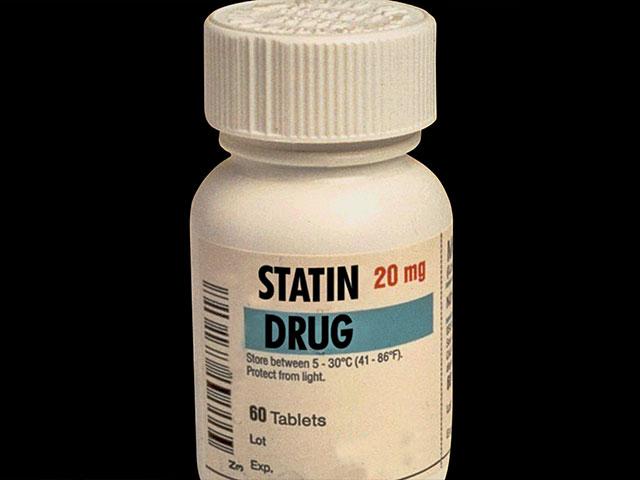A government-backed task force says it's broadening its recommendation for who should be taking cholesterol-lowering statin drugs. Meanwhile, a growing number of doctors are saying just the opposite: that they are far too overprescribed and can even be dangerous.
The U.S. Preventive Services Task Force says middle-aged people with just one risk factor that puts them at a 10% or greater risk for cardiovascular disease in the next ten years, should take a statin to prevent having a heart attack or stroke. The risk factors are: high cholesterol, high blood pressure, diabetes, or are a smoker. The USPSTF also states that people with a 7.5% to 10% risk should consider taking a statin and should discuss it with their doctor.
However, Dr. Rita Redberg from the University of California, San Francisco, who helped write a commentary in the Journal of the American Medical Association, said statins may cause more harm than good. She told Reuters Health, "Be sure you understand your own chance of benefit, as most people taking statins will never see a benefit from them."
"Even the most optimistic calculations about statins say that of 100 people who take statins for five years, two will avoid a heart attack and 98 will have no benefit," she said. "Yet, approximately five to 20 of those 100 people will experience adverse effects, including muscle aches, memory loss or brain fog, diabetes, fatigue, and/or weakness," she added.
"The best way to stay healthy is not by taking a statin, but by working on healthy lifestyle habits," Redberg said. "Unfortunately, data show that in the last decade people that take statins are more likely to gain weight and be less active than people who do not take a statin, perhaps due to a false reassurance from taking a statin."
Likewise, Dr. David Perlmutter, a neurologist and author of the new book, The Grain Brain Whole LIfe Plan, speaking on "The 700 Club," said there is a place to use statins, but they are incredibly overused, particularly because of the harm they can cause the brain. He said even the FDA recognized this risk.
"The FDA now requires statins to carry a label indicating they can compromise your memory. And it makes sense. When you lower your cholesterol, which is a vital brain nutrient, there's going to be consequences" He continued, "There was a time when we were told we should't eat eggs. Why? Because they have the 'dreaded' cholesterol in them. Eggs are good for your brain, they're good for your heart, they're good for your body."
Dr. Perlmutter added that scientific research indicates statin drugs can immediately diminish a person's ability to think clearly.
"We need cholesterol in the brain," he said, "One recent study showed that the people who had the lowest cholesterol had the highest risk for dementia."
Dr. Stephen Sinatra, a cardiologist and author of The Great Cholesterol Myth goes so far as to say high cholesterol isn't even the cause of heart disease, that the real culprit is inflammation, brought on primarily by consuming too much sugar.
He admitted statins are useful for a small number of patients, but not nearly as many as the number of people taking them.
"The side effects of statins are grossly under-reported," he said, "Muscle pain and fatigue are two of the key complaints he hears from statin users that often are misdiagnosed."
"These are statin side-effects," he concluded, "However, a lot of the doctors and patients think they're getting older. They're not getting older, these are statin side effects."
Patients over 70 years old are especially vulnerable.
"They can't remember names. They can't remember where they put their glasses or keys. They forget sometimes who they are," Sinatra explained,
"It can actually bring on the onset of Alzheimer's Disease by 15 years. So you have to be cautious with statins," he advised.










